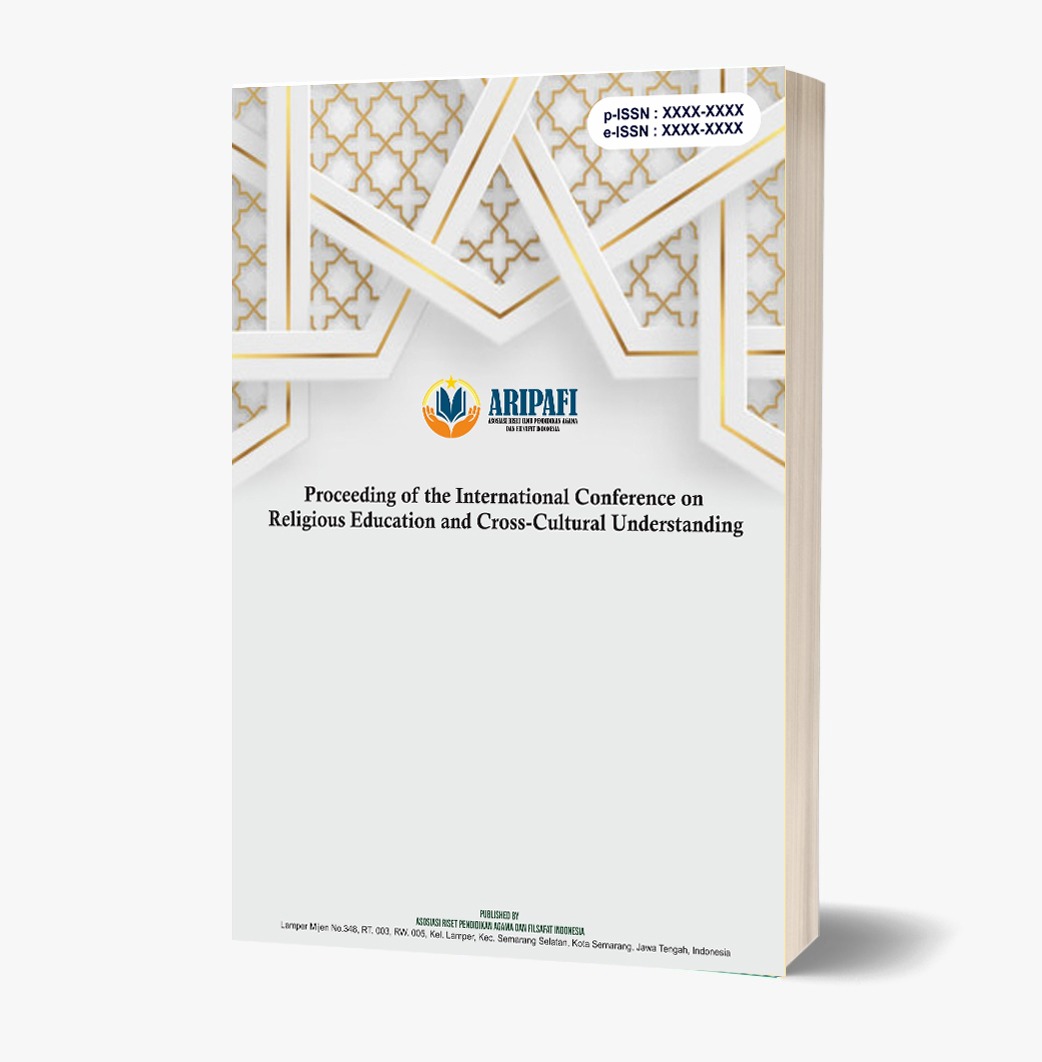Artificial Intelligence (AI) in Islam: Building Ethics and Solutions Based on Tawhid
Keywords:
Tawhid, Islamic Ethics, AI, Digital Technology, JusticeAbstract
This article explores the application of Islamic ethics, particularly the concept of tawhid, in the development of digital technologies and artificial intelligence (AI). The study employs a qualitative descriptive method based on a literature review to analyze Islamic principles, such as justice (al-'adl), trust (amanah), and public benefit (al-maslahah), in addressing ethical challenges posed by AI. The findings indicate that Islamic values can provide a holistic framework for tackling algorithmic bias, privacy concerns, and social inequalities associated with AI. However, the study identifies a gap in academic research regarding the integration of tawhid principles with AI development. A limitation of this research is the lack of empirical case studies to test the effectiveness of implementing these principles in technology development.
References
Al Kubaisi, A. A. S. H. (2024). Ethics of Artificial Intelligence a Purposeful and Foundational Study in Light of the Sunnah of Prophet Muhammad. Religions, 15(11). https://doi.org/10.3390/rel15111300
Aliff, Nawi., Mohd, Faiz, Mohd, Yaakob., Chua, Chy, Ren., Nor, Yazi, Khamis., Ab., Halim, T. (2021). A Preliminary Survey of Muslim Experts’ Views on Artificial Intelligence. Islamiyyat, 43(2), 3–16. https://doi.org/10.17576/islamiyyat-2021-4302-01
Amana Raquib. (2015). Islamic ethics of technology: an objectives (Maqāṣid) approach. The Other Press. https://philpapers.org/rec/RAQIEO
Arya, A., & Lokesh Kumar Sahu. (2024). Sustainability in Technological Advancements. International Journal For Multidisciplinary Research, 6(1), 2–6. https://doi.org/10.36948/ijfmr.2024.v06i01.12528
Choudhury, M. . (2019). Establishing Tawhidi String Relation as the Epistemic Foundation of Tawhidi Methodological Worldview. In The Tawhidi Methodological Worldview. Springer Nature Singapore. https://doi.org/https://doi.org/10.1007/978-981-13-6585-0_2
Elmahjub, E. (2023). Artificial Intelligence (AI) in Islamic Ethics: Towards Pluralist Ethical Benchmarking for AI. Philosophy and Technology, 36(4), 1–24. https://doi.org/10.1007/s13347-023-00668-x
Faverio, M., & Tyson, A. (2023). What the data says about Americans’ views of artificial intelligence. Pew Research Center. https://www.pewresearch.org/short-reads/2023/11/21/what-the-data-says-about-americans-views-of-artificial-intelligence/
Gemiharto, I., & Masrina, D. (2024). User Privacy Preservation in AI-Powered Digital Communication Systems Perlindungan Privasi Pengguna dalam Sistem Komunikasi Digital Berbasis AI assistants has steadily grown . Localizing these relevance and user engagement by allowing. Jurnal Ilmu Komunikasi, 13(2), 349–359. https://ejurnal.undana.ac.id/index/index.php/JIKOM/article/view/9420/4528
Hermansyah, M., Najib, A., Farida, A., Sacipto, R., & Rintyarna, B. S. (2023). Artificial Intelligence and Ethics: Building an Artificial Intelligence System that Ensures Privacy and Social Justice. International Journal of Science and Society, 5(1), 154–168. https://doi.org/10.54783/ijsoc.v5i1.644
Jamal, A. A. (2022). The Role of Lawyers in Access to Justice: Asian and Comparative Perspectives. In Access to Justice and an Islamic Ethic of Justice (pp. 247–259). Cambridge University Press. https://doi.org/https://doi.org/10.1017/9781009042253.017
Kareen Foong. (2024). National Guidelines on Artificial intelligence Governance and Ethics Key-Principles. Www.Rahmatlim.Com. https://www.rahmatlim.com/perspectives/articles/29210/mykh-national-guidelines-on-artificial-intelligence-governance-and-ethics-key-principles
Khalili, A. M. (2024). Artificial Intelligence: A Kalam and Sufi Perspective. Preprints. https://doi.org/10.20944/preprints202306.0363.v4
Krunal Manilal Gala. (2024). Ethical and Legal Considerations in AI-Driven Health Cybersecurity. International Journal of Scientific Research in Computer Science, Engineering and Information Technology, 10(5), 682–690. https://doi.org/https://doi.org/10.32628/CSEIT241051059
Lahiri Chavan, A., & Schaffer, E. (2024). Ethical AI does not have to be like finding a black cat in a dark room. AI and Society, 39(4), 2135–2137. https://doi.org/10.1007/s00146-023-01661-w
Marlina, & Yaza Azahra Ulya. (2024). Communication Strategies in Islamic Da’wah Opportunities and Challenges in the Era of Artificial Intelligence. Feedback International Journal of Communication, 1(2), 121–130. https://doi.org/10.62569/fijc.v1i2.35
Masudul Alam Choudhury. (2022). 9 Conscious Technology and Technological Change. In Institutional Islamic Economics and Finance (1st Editio). Routledge. https://www.taylorfrancis.com/chapters/edit/10.4324/9781003227649-9/9conscious-technology-technological-change-masudul-alam-choudhury
Mohadi, M., & Tarshany, Y. (2023). Maqasid Al-Shari’ah and the Ethics of Artificial Intelligence. Journal of Contemporary Maqasid Studies, 2(2), 79–102. https://doi.org/10.52100/jcms.v2i2.107
Mohammed Ghaly. (2024). What Makes Work “Good” in the Age of Artificial Intelligence (AI)? Islamic Perspectives on AI-Mediated Work Ethics. The Journal of Ethics, 28, 429–453. https://doi.org/https://doi.org/10.1007/s10892-023-09456-3
Moussawi, SaraDeng, X. (Nancy), & Joshi, K. D. (2024). AI and Discrimination: Sources of Algorithmic Biases. ACM SIGMIS Database: The DATABASE for Advances in Information Systems, 55(4). https://doi.org/https://doi.org/10.1145/3701613.3701615
Muhammad Ashraf Faheem. (2024). Ethical AI: Addressing bias, fairness, and accountability in autonomous decision-making systems. World Journal of Advanced Research and Reviews, 23(2), 1703–1711. https://doi.org/10.30574/wjarr.2024.23.2.2510
Naeem AllahRakha. (2024). UNESCO’s AI Ethics Principles: Challenges and Opportunities. International Journal of Law and Policy, 2(9), 24–36. https://doi.org/https://doi.org/10.59022/ijlp.225
Ngugi, Mwaura, J. (2024). The Use of Artificial Intelligence in Urogynecology. International Journal of Women’s Health and Reproduction Sciences, 12(1), 1–2. https://doi.org/10.15296/ijwhr.2024.6003
O.C. Ferrell, & Ferrell, L. (2024). Building a Better World: The Role of AI Ethics and Social Responsibility. Journal of Macromarketing, 44(4). https://doi.org/https://doi.org/10.1177/02761467241285
Papaioannou, T. (2021). The idea of justice in innovation: Applying non-ideal political theory to address questions of sustainable public policy in emerging technologies. Sustainability (Switzerland), 13(5), 1–14. https://doi.org/10.3390/su13052655
Raquib, A., Channa, B., Zubair, T., & Qadir, J. (2022). Islamic virtue-based ethics for artificial intelligence. Discover Artificial Intelligence, 2(1). https://doi.org/10.1007/s44163-022-00028-2
Rozaanah. (2024). Reconstructing Islamic Religious Education in the Era of Artificial Intelligence (AI): An Opportunity for Revival. Tasqif: Journal of Islamic Pedagogy, 1(1), 10–18. https://doi.org/10.51590/tsqf.v1i1.2
Shelly Singh. (2024). Next Wave of Artificial Intelligence Market Worth $190B by 2025. MarketsandMarkets. https://www.prnewswire.com/news-releases/next-wave-of-artificial-intelligence-market-worth-190b-by-2025--exclusive-study-by-marketsandmarkets-300965312.html
UNESCO. (2022). Recommendation on the Ethics of Artificial Intelligence. In United Nations Educational, Scientific and Cultural Organization, (Issue November). https://doi.org/10.7551/mitpress/14102.003.0010
Yucca Reinecke, S. S. (2024). AI for Impact: The Role of Artificial Intelligence in Social Innovation. White Paper, April, 36. https://www3.weforum.org/docs/WEF_AI_for_Impact_Social_Innovation_2024.pdf
Yunos, A. S., & Hamdan, M. N. (2024). Artificial Intelligence in Healthcare : Analysis From the Perspective of Maqasid Al-Shariah. Journal of Information System and Technology Management, 9(35), 58–74. https://doi.org/10.35631/jistm.935004






